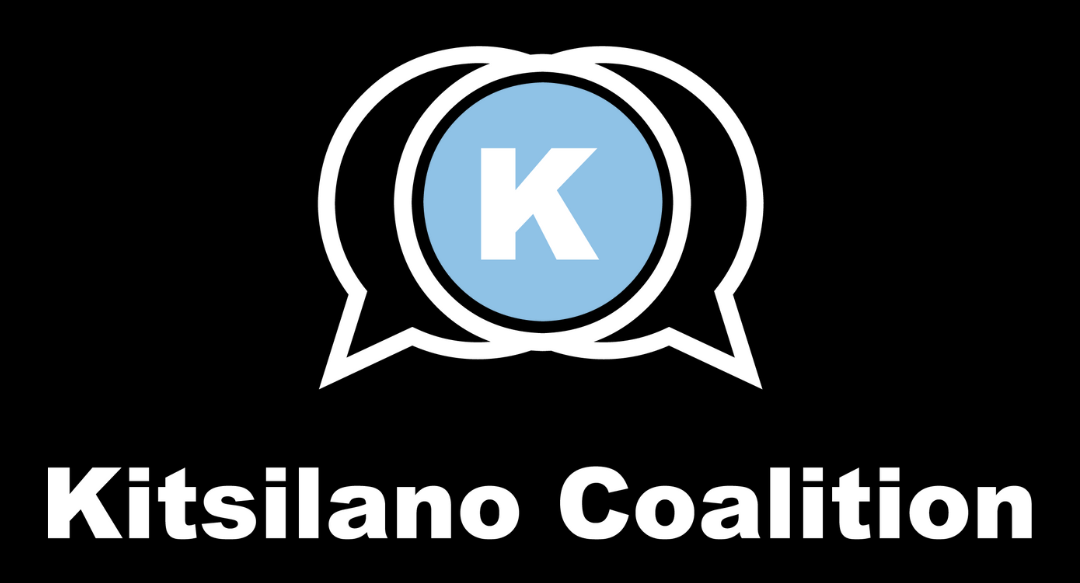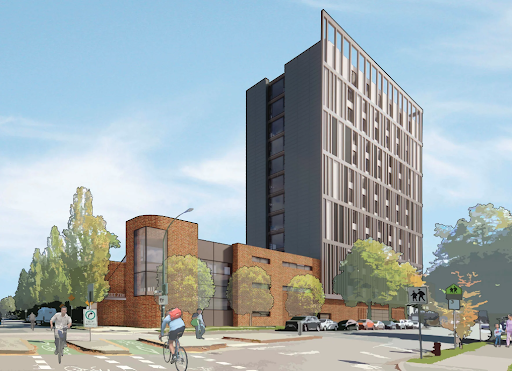Episode 375 – June 8, 2023
Listen On: Apple Podcasts | Spotify | Google Podcasts
There is no debate: Vancouver has a housing crisis. But that does not mean that there is no debate when it comes to the next best next steps for our city & region. Karen Finnan & Cheryl Grant from the Kitsilano Coalition sit down with Adam & Matt this week to discuss the explosive new project approved at W 7th & Arbutus in Kitsilano.
Who should be consulted when new construction gets approved? Does all housing in all locations make sense in our supply constrained region? And should the provincial government be able to override local voices & stifle opposition? The project at W 7th & Arbutus has become the third rail in our housing debate & will set the path for years to come. Listen up!
Guest Information

Karen Finnan
Karen Finnan is a resident of Vancouver around 45 years, 30 of those years in Kitsilano. She is also a member of the Kitsilano Coalition, which is 100% volunteer run.

Cheryl Grant
Cheryl Grant is a lifelong resident of Vancouver and has been very involved in the local community and business community. She has been in Vancouver for about 45 years. She is also a member of the Kitsilano Coalition, which is 100% volunteer run.
Episode Summary
Karen Finnan and Cheryl Grant of the Kitsilano Coalition sit down with us to discuss the latest developments on the supportive housing proposed at Arbutus and W7th. With neighbourhoods at war with the city and province, are we finding the best housing solutions for our communities?
Keep your finger on the pulse of Vancouver’s real estate market with our Live Wire email newsletter.
Adam and Matt on the term “NIMBY” and the nuanced conversation needed around housing supply in Vancouver:
We’ve been guilty of using the term “NIMBY” as a pejorative term, similar to “Okay, Boomer.” We generally stand with the position that we need more housing in Vancouver at any cost. We even have shirts that say “Build more housing!”
But we throw around this term NIMBY and as soon as it’s used, it shuts down the conversation. Debate is healthy and anything that shuts it down is bad.
We need more nuance; we can’t just have blanket rezoning policies. It’s complicated and our conversation today raises questions around the future of our city, how we’re changing neighbourhoods, who is changing them and what the repercussions are.
Who are Karen Finnan & Cheryl Grant?
Cheryl: I’m a lifelong resident of Vancouver and have been very involved in the local community and business community. I’ve been in Vancouver for about 45 years.
Karen: I’ve also been in Vancouver around 45 years, 30 of those years in Kitsilano.
What is the Kitsilano Coalition?
The Kitsilano Coalition is a group of people who have a common interest in development in the neighbourhood and the direction that Kitsilano and the city are moving in on housing issues. We have homeowners, tenants, parents and other residents who all want to make sure we have a liveable community in Kits.
The coalition came together in 2021 when we started to notice a lot of changes in the neighbourhood. There was the announcement of the Arbutus subway station, the Broadway Plan and the supportive housing project at Arbutus and 7th. Residents and businesses wanted to understand more because there was a real lack of information in the community.
People wanted to connect and that’s where the coalition was born. The coalition is 100% volunteer run.

Can you tell us about the proposed supportive housing project at Arbutus and 7th?
It will be modular construction with units built off-shore. All of the units are single-occupancy only. There will be 13 floors and it will be effectively 18 storeys in height due to the construction style. It will serve up to 129 individuals from the hardest to house portion of the population. We know a large proportion of these individuals suffer from mental health challenges, substance abuse issues or both.
This building will have a common drug use room in the facility. We haven’t been told about any other supportive services on-site other than people coming in to refer residents out to other facilities.
The building is on Arbutus between W7th and W8th. It’s surrounded by the Greenway and across the street from a toddler park, elementary school and daycare. 600 little ones are within steps of the proposed site.
The majority of the buildings in this part of Kits are low-rise walk-ups. There’s a lot of renters and a lot of diversity in the area. It’s a very family-oriented and senior-oriented area.
What is the logic of having a SRO (single room occupancy) tower in this location?
It doesn’t make a lot of sense to anyone that we’ve talked to. But it’s something David Eby seems to be driving for reasons that aren’t clear to us. His riding borders the project but it isn’t in his riding.
There seems to be a lot of enthusiasm for pioneering this building style in Vancouver. These units can be built more quickly but I understand that the construction is more expensive. The average cost for building an economy level apartment in Vancouver is $110,000 but these units will be just under $500,000 to build. And that’s without the land purchase, since the city is providing the land for free.
No one has ever been opposed to social or supportive housing. I formally sat on the Board of Directors for the Boys and Girls Club. I thought it would be fantastic to have social housing come in with amenities so we could partner with them. I reached out to BC Housing to see how we could partner and support but was then told the amenities are the open drug use room. No children under 18 are allowed into the building because of that.
This housing project seems to be a mismatch with the community. Is this the best model to support people coming into the community?
That led to a bigger discussion around the style and size of this development. It’s very opposing on a pedestrian thoroughfare.
Another factor is the cost. A $64 million building? One of the most underutilized sites in the city is Broadway and Arbutus. Why are we giving away a key piece of property for free? The city has given the land to the project for free, the developer’s community contribution has been waived (which should be over $2 million) and the cost to build these units is much more than what a developer would be making. Why are we choosing this site and why modular housing?
This isn’t just happening in Kitsilano. They want to put these buildings in every neighbourhood. They’re talking about 50 neighbourhoods in the city.
How is the Kitsilano Coalition different from NIMBY-ism?
When we got involved in looking at this project, we took the time to educate ourselves and reach out to experts. We spoke to Dr. Julian Somers, who is involved in a five year government funded research program about how to house people suffering from mental illness, homelessness and addiction. His research is very clear that this is the wrong way to house them.
Our message isn’t that we shouldn’t have social or supportive housing on the site. Our message is that the city, province and country need to look at how we’re building housing for the most vulnerable members of our society.
We need to build housing that will allow people to get on a path to overcome issues of addiction and mental illness and reintegrate back into our community. We don’t want to just tuck people away into towers and leave them alone with their problems.
Dr. Julian Somers found that the most effective way to assist people is with distributive housing. So for example, you’d have 5% of a number of buildings in the city where people are placed and social workers would come in to assist them. Residents with these problems could look around and see that there is a way out.
The example I use is that if you’re a smoker who wants to quit smoking, would you want to move in with 128 other smokers with a designated area for smoking in the building?
With all the new construction coming with theBroadway Plan, now is the time to start distributive housing. Absolutely, let’s house people. But let’s do it expeditiously and in the right way. Let’s do it so we don’t disrupt existing neighbourhoods and instead have the support of the community.
Let’s do it in a way that doesn’t stigmatize people by putting them all in a tower that everyone knows is supportive housing. Instead, let’s have folks integrate into regular society and provide them with the support they need.
Keep your finger on the pulse of Vancouver’s real estate market with our Live Wire email newsletter.
Why is the government taking this approach?
I have no idea. Perhaps because it would take more time and energy to get onto a different path instead of putting as many people into housing as possible and being able to say, “I solved homelessness in Vancouver.” But that’s just one piece of the puzzle. You have to give people the tools they need to live a happy and successful life that allows them to integrate into society.
When David Eby was the housing minister, he did use words like “NIMBY” to describe residents. I remember a young dad who teared up and said he would always be a renter but didn’t know if his kids could safely play in the community.
The goal posts for this project are continually shifting. Eby went as far as to say that he would stake his reputation on this building and clear it out himself if it didn’t work. But why are we getting to this point before shovels are in the ground? There’s obviously a problem here. A developer would never say that.
This is public funds. It will cost taxpayers $225 million over the lifetime of the building. That’s just building and operating the property. The fact that David Eby is trying to shut down questions and threatening public funding makes this very unusual. Citizens are not being allowed to ask questions.
Premier Horgan had a similar issue with the proposed museum in Victoria. He realized the public had questions and said, “You know what? We hear you and we made an error.” Why isn’t David Eby stopping to acknowledge that there are a lot of questions?
We need to stop, reevaluate and figure out how we build housing better. These problems are popping up all around BC. We need to stop and come back together.
They could have put temporary modular housing on this site over the last two years. They could be building modular housing above the new St. Paul’s Hospital. So why aren’t these options being looked at? That’s the question.

Keep your finger on the pulse of Vancouver’s real estate market with our Live Wire email newsletter.
What has happened with this project in the last few months?
We first received notification of the supportive housing project in February 2021. There were some very ineffectual consultation processes. Only 39 members of the public were allowed to attend Zoom meetings and most people on the call were from the government.
That’s when the coalition formed so we could have a collective voice since we weren’t being listened to as individuals. There was the referral report in May 2022 and the public hearing started in June 2022. There were a number of procedural difficulties with that hearing.
In October we filed a petition for judicial review of the public hearing on the basis of improper procedure. We started that review process but before we could get a date, the city wrote a letter to the provincial government asking them to step in and do something. David Eby then introduced legislationthat basically said the public hearing was properly held. But that’s the court’s role to decide, not David Eby’s.
So we’re now in a constitutional battle because this has implications beyond just this housing project. If we have municipal bodies making decisions and then writing to the premier to correct any errors, that can be applied to any issue.
We never expected to be taking on a constitutional battle. What David Eby’s legislation does is it takes away our right to the courts if the government does wrong. That has way broader implications than just one housing project.
Keep your finger on the pulse of Vancouver’s real estate market with our Live Wire email newsletter.
How has the Kitsilano Coalition worked with other Vancouver residents?
It’s interesting that the Kitsilano Coalition has become a voice for people outside of Kitsilano. People in other communities where similar projects are going in have reached out and studied our hearing. We’re even getting letters from people within supportive housing. They want better too.
We’re looking at what’s happening in Yaletown, Chinatown, Olympic Village and other examples around the city. We’re studying what has worked and what hasn’t.
For couples or families, you’re not able to stay in the same room in this kind of SRO housing. Each person has to have their own room. That keeps people in poverty because who can afford to pay two or more rents?
People are passionate about our city and our province. They want better lifestyles for everyone. The fact that our “leadership” is pushing over that voice tells us that what is going on doesn’t make sense. This isn’t just NIMBY-ism; there’s a lot more going on.
There’s obviously anurgency to the housing issue and Vancouver is famous for long-lasting consultation. How do you address that?
There are so many studies out there that show we can be integrating people into housing right now. Dr. Somers’ study with SFU got people into housing across the country and it was very successful. People got to choose where they wanted to live. But this model at Arbutus is taking away from that.
UBC did a studythat gave people in homelessness $7500. The majority got themselves out of homelessness, moved their lives forward and had money in their pocket a year later. Those that needed more support were able to connect to services.
Instead of towers, we should be building service. Over 80% of people who are experiencing homelessness want to return to the workforce. They’re highly motivated to reintegrate. We should be building around that. These people are you and I. How would I want my own family member to live?
We don’t have to wait to build new buildings to integrate distributive housing now. That’s what Dr. Somers’ model showed us. It can happen right now and could have been happening over the last two years.
If we need more time to develop the right model or find housing, I think the solution is temporary modular housing. If you build a permanent modular building at 7th and Arbutus, you’re cementing this city in a failed housing policy for the next 60 years. The life of that building will only ever be single occupancy.
We have women in the city who have to choose between housing or having their children with them. These SRO projects don’t cater to families. They don’t allow families to unify and support one another.
What has been the reaction from Ken Sim and city council to the Kitsilano Coalition?
We’ve been listening in and participating in hearings for other buildings like this around the city. Since the ABC council came in, they all vote unanimously to rubber stamp these projects. At least before we had some dissent and councillors would raise concern. Now projects get rubber stamped through very quickly.
It was the city that wrote to the provincial government asking them to force this project through. Instead, they could have consented to our judicial review which would have allowed the project to go back to city staff to be reworked.
There’s a similar project in Victoria in Mount Edwards that is across from an elementary school. But they applied certain criteria for the tenants which remedied some safety concerns. That project is a success so we’re confused why we weren’t offered that kind of option for the project in Kits.
We’re happy to get on board with social and supportive housing at the site on Arbutus and 7th. But we’re just asking for some revisions to be made to address safety concerns and ensure the success of tenants.
What happens next?
This whole thing has been unpredictable. Just this morning it was filed for constitutional challenge. We continue to be optimistic that someone will revisit why the decisions were made. That starts with the Board of Directors at BC Housing.
Now is the time to look at these projects and work with communities so we can find housing for everyone. We want to have vibrant, healthy communities.
The government needs to remember that they are elected officials of the community. They need to sit down with the community instead of continuing to push this. If they had brought us to the table months ago, we would be in a better place today.
We may be in litigation but our door is always open. We’ve had calls with David Eby and he knows where to find us. Ken Sim and the council had conversations with us pre-election.
Keep your finger on the pulse of Vancouver’s real estate market with our Live Wire email newsletter.
The 5 Wire: Getting to Know VREP co-host, Matt Scalena!
What is one book you’ve read recently and recommend?
I just finished Finding Ultra by Rich Roll. I listened to it while training for the Whistler half marathon. It’s pretty inspiring!
In the last few years, what new belief, behaviour or habit has most improved your life?
After I go to the gym in the morning I will come home and make myself a smoothie. My wife is an avid gardener so this morning I walked out to the garden to get fresh kale and spinach for my smoothie. There’s nothing better!
What have you been binge watching lately?
Succession would be the obvious choice but I just watched the Steve Jobs movie. It’s not great but it’s not bad! It made me want to read the biography; he was a really interesting guy.
Favourite band or type of music?
My Spotify Wrapped said it was Zach Bryan. He was my most listened to in 2022.
What is something you’ve purchased recently for under $1500 that has had a positive impact on your life?
The Streaks app for $6.99 has honestly had such a big impact on my life. It’s not the most intuitive app but there’s something about charting how often you’ve done something that is super motivating.
Keep your finger on the pulse of Vancouver’s real estate market with our Live Wire email newsletter.
Episode Host

Adam Scalena
Adam is a full-service realtor, specializing in Vancouver’s best areas. His systematic approach to real estate and dedication to his clients has consistently placed him within the top 10% of realtors operating within Greater Vancouver.

Matt Scalena
Matt is real estate obsessed and considers himself a lifelong student of the Vancouver real estate market. As a co-manager of the Scalena Real Estate team, Matt prides himself on expertly advising buyers and sellers on all aspects of the fast-paced, dynamic Vancouver real estate market. He is present at every stage of the process, from that first phone call or email right through to when keys are exchanged between sellers and buyers.









